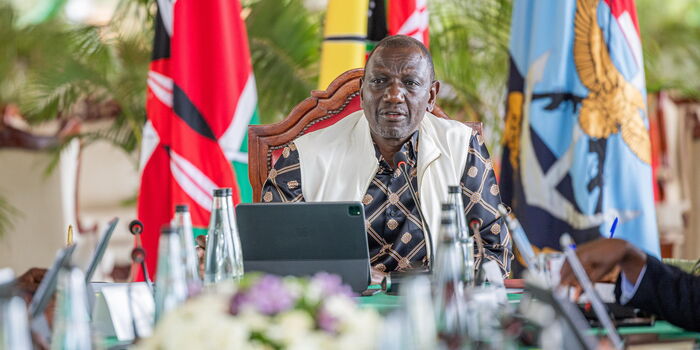On Tuesday, April 29, President William Ruto’s Cabinet officially approved the Finance Bill 2025, outlining several major changes aimed at strengthening Kenya’s economy and improving tax administration across various sectors.
A central focus of the bill is to improve how the government handles public finances by plugging loopholes that have allowed misuse of tax funds in the past.
One major concern being addressed is the manipulation of tax refund systems, where individuals or businesses have in previous years made exaggerated claims to siphon money from public coffers.
Unlike earlier proposals that often included new taxes, the Finance Bill 2025 takes a different approach.
The government now aims to reduce the need for new tax measures by introducing a new legislative framework designed to streamline the current tax system and make it more efficient.
Some of the major highlights of the bill include simplifying the tax refund process, closing legal gaps that have previously slowed down revenue collection, and reducing the number of tax-related disputes.
These goals will be achieved through amendments to key tax laws such as the Income Tax Act, the VAT Act, the Excise Duty Act, and the Tax Procedures Act.
Another important provision of the bill is support for small businesses. Entrepreneurs and small enterprises will now be able to claim the full cost of their day-to-day tools and equipment as tax deductions in the same year they purchase them.
This move is expected to ease the financial burden on startups and boost productivity.
Additionally, the bill brings good news for retirees. All gratuity payments, whether from public or private pension schemes, will now be fully exempt from taxation.
This change is designed to provide more financial security for retirees and encourage savings.
According to the Cabinet, these reforms are aligned with the government’s Bottom-Up Economic Transformation Agenda (BETA).
The agenda aims to create a more inclusive economy by ensuring that even the most vulnerable groups benefit from national growth and development.
During the same Cabinet meeting, another critical piece of legislation—the Public Finance Management (Amendment) Bill, 2024—was also approved. This amendment is meant to improve the country’s readiness in dealing with emergencies.
Once passed by Parliament, the new law will allow county governments to set up their own County Emergency Funds.
These funds will help counties respond more quickly and effectively to disasters and emergencies, protecting both lives and vital infrastructure.
The Cabinet stated that this move was prompted by the challenges experienced during the 2023 El Niño rains, which exposed serious weaknesses in the country’s emergency response systems.
The proposal also follows recommendations made during the 24th Ordinary Session of the Intergovernmental Budget and Economic Council (IBEC) held in August 2024.
The decision to approve the Finance Bill 2025 comes nearly a year after widespread public protests over the now-abandoned Finance Bill 2024, which had introduced several unpopular tax hikes.
This year’s approach suggests a shift in strategy, focusing more on efficiency and fairness rather than imposing new tax burdens.
Join Our Political Forum official 2025 WhatsApp Channel To Stay Updated On time https://whatsapp.com/channel/0029VaWT5gSGufImU8R0DO30


